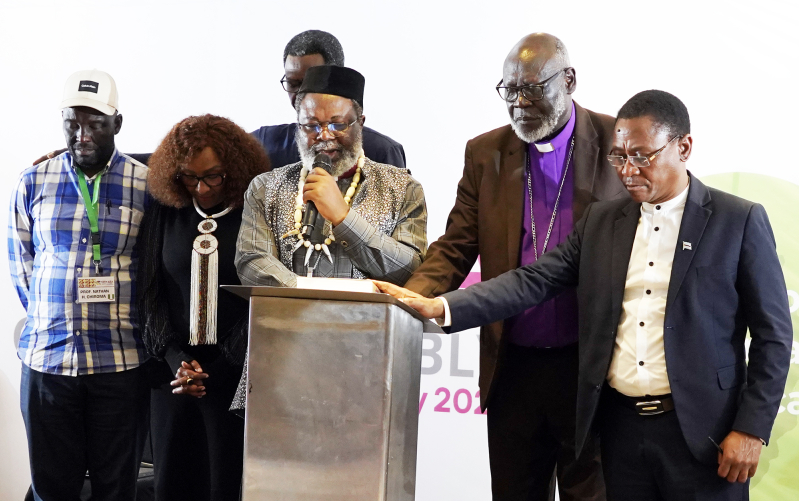
The second edition of the Africa Bible Commentary (ABC) was officially commissioned on May 23 in the final sessions of the 13th General Assembly of the Association of Evangelicals in Africa (AEA), marking a significant milestone in African theological scholarship. Leaders emphasized that the commentary is fully African-owned and crafted to meet the spiritual and contextual needs of the African Church.
The original Africa Bible Commentary, first published in 2006, was hailed as a landmark resource—the first of its kind for the continent. This revised and updated edition, developed over nearly eight years, has expanded its contextual relevance and depth, offering richer exegetical and theological engagement with Scripture through an African lens.
“The Africa Bible Commentary is your project,” said Professor Elizabeth Mburu, a member of the editorial team and Langham Literature’s Regional Coordinator for Africa. “It is supported by many partners, but it is owned by the AEA. It is a resource owned by Africa, by us and for us.”
The updated edition now includes 122 contextual articles—almost double the number from the first edition—addressing issues ranging from social media and ministry to persecution, disability, gender, pastoral family life, and digital ethics. Importantly, 21 of the 53 new authors are women. The revised commentary also features a more robust editorial framework that reflects a three-dimensional interpretive approach: the world behind the text (historical background), the world of the text (literary structure and message), and the world in front of the text (reader context).
Professor Nathan Chiroma, one of the editors, highlighted how this approach helps pastors and lay leaders alike make sense of the Bible while responding to present-day challenges. “These articles are meant to address the questions we are asking and help local pastors address contextual issues that under normal circumstances would not be addressed,” he said.
Professor Mburu emphasized the commentary’s theological fidelity and contextual awareness. “We did not allow our African contexts to override the biblical message,” she said. “Scripture is the final authority.”
The commentary draws on traditional African symbols, idioms, and proverbs to create interpretive bridges for readers, all while maintaining rigorous exegetical standards. “This edition exposes users to three worlds: the world behind the text, the world of the text, and the world in front of the text,” she said. “It ensures the Bible speaks to African realities without compromising its truth.”
Rev. Dr. Master Matlhaope, AEA General Secretary, presided over the commissioning ceremony. In his remarks, he recalled the vision of AEA’s first African General Secretary, Byang Kato, who warned that the African church suffered from “theological anemia.” Kato had called for the production of African-led theological resources to equip churches and leaders.
“This determination inspired pioneers to create the first Africa Bible Commentary, and the same commitment has driven the editorial team for this new edition,” said Matlhaope. “We pray that it will have a transformational impact across Africa.”
In a symbolic act of blessing, newly elected AEA President Rev. Dr. Jean Libom Li Likeng led the assembly in prayer, dedicating the second edition to God and invoking his guidance for its distribution and use across the continent.
“This is a wonderful opportunity for us to come together and pray for this remarkable resource,” Matlhaope added. “I wholeheartedly recommend this commentary for use in seminaries, personal devotions, and across our national alliances.”
The English edition is scheduled for official release in October 2025, with translations into French, Portuguese, and Swahili already underway. A post-publication celebration and wider launch are expected in Addis Ababa in 2026.
“The church of the future is in our hands,” Mburu said. “We have a responsibility to shape it—and the Africa Bible Commentary will help us do just that.”





